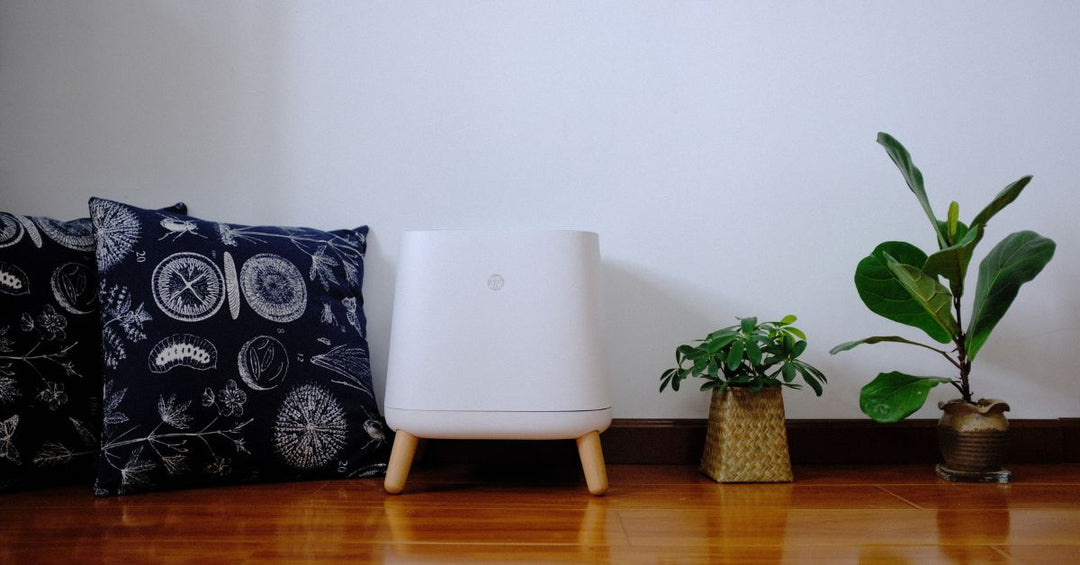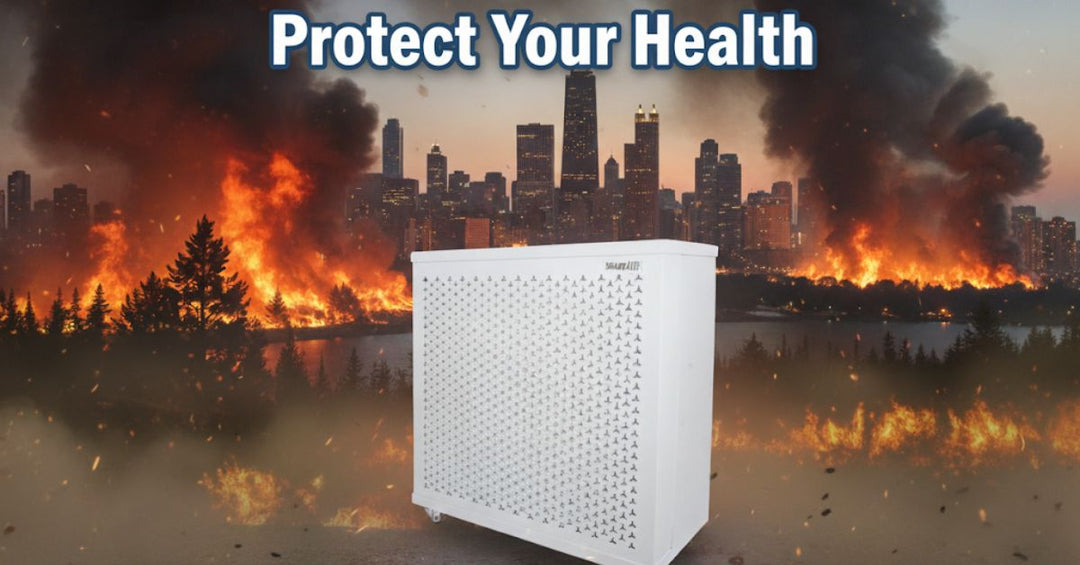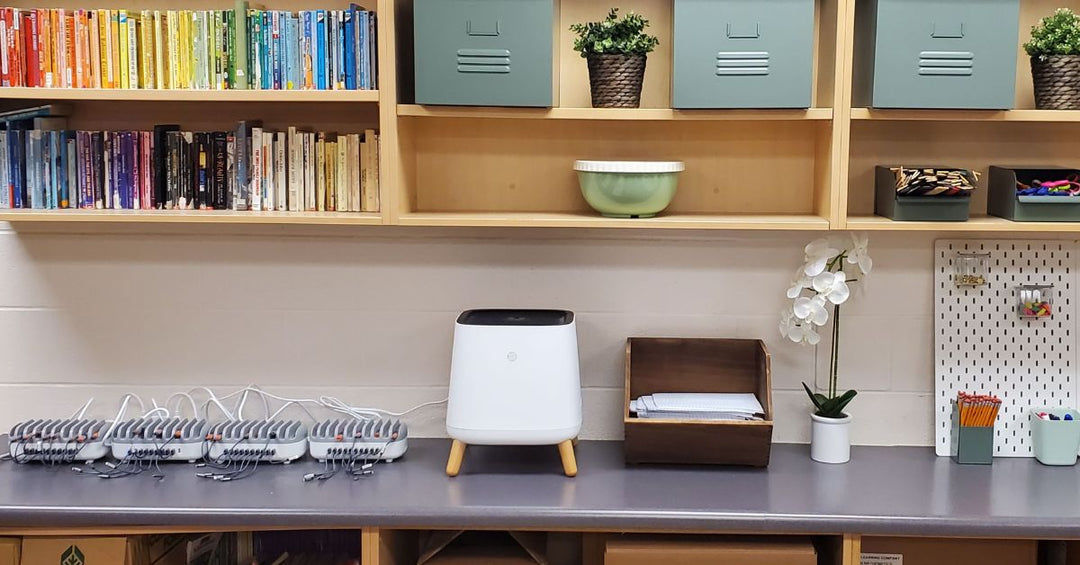Why HEPA Portable Air Purifiers Outperform Ionizers

Clean air is vital for maintaining health, especially considering pollutants, allergens, and pathogens often compromise indoor air quality. When choosing a device to improve air quality, HEPA portable air purifiers and ionizers represent two popular but fundamentally different technologies.
While both aim to reduce airborne particles, HEPA portable air purifiers stand out for their precision, safety, and proven effectiveness. We’ll discuss how these systems differ, focusing on technical and practical advantages that demonstrate why HEPA portable air purifiers outperform ionizers.
The Core Differences Between HEPA Technology and Ionizers
To understand why HEPA portable air purifiers excel, it’s important to first grasp how each technology operates. HEPA systems use mechanical filtration to physically capture particles in the air. HEPA, short for “high-efficiency particulate air,” filters trap 99.97 percent of particles, including dust, pollen, mold spores, and even bacteria.
Ionizers, on the other hand, rely on ionization to remove pollutants. These devices emit charged ions into the air, which attach to airborne particles. The charged particles then cluster together and either fall onto surfaces or get trapped on collection plates within the ionizer itself. While this method may sound appealing to some, it introduces limitations in terms of efficiency and practicality.
Efficiency of HEPA Technology vs. Ionizers
When it comes to particle removal, HEPA portable air purifiers outperform ionizers in multiple ways. HEPA filters in air purifiers provide highly consistent and measurable results. Their particle-trapping capacity ensures the removal of even tiny contaminants from the air, creating a safer and cleaner environment. This level of purification is critical for individuals who suffer from allergies, asthma, or other respiratory challenges. Importantly, these results do not require optimal conditions, making HEPA systems reliable across different settings.
Ionizers, however, struggle to match this level of efficiency. While they can reduce some airborne pollutants, their performance is often inconsistent. Ionization cannot guarantee the complete removal of particles, especially smaller ones.
Even when charged particles fall out of the air, they remain on surfaces, which can lead to resuspension during regular activity, such as vacuuming or even walking through a room. This limitation means that users may experience less tangible benefits from an ionizer compared to a HEPA system.

Safety Considerations
Another key advantage of HEPA portable air purifiers is their safety profile. HEPA systems physically capture and contain pollutants. This mechanical filtration method eliminates the possibility of secondary pollution, as contaminants remain trapped within the filter until it is replaced.
Ionizers, however, can present safety concerns. Many models generate ozone as a byproduct during the ionization process. Ozone is a reactive gas that can irritate the lungs, aggravating conditions such as asthma and bronchitis.
Some ionizers even exceed ozone levels considered safe for human exposure, posing a risk to sensitive groups such as children, the elderly, or individuals with preexisting health issues. Although not all ionizers produce harmful ozone levels, the possibility alone warrants caution.
Compare this to the HEPA filter portable air purifier available from Smarter HEPA that avoids this risk entirely. Committed to being a dependable supplier that’s a leading force in improving indoor air quality, we offer a portable air purifier that allows you to breathe clean air even when on the move. It’s superior to other portable air purifiers in that it doesn’t contain an ionizer, so it emits zero harmful ozone.
Proven Effectiveness Backed by Science
Initial HEPA technology was developed in the 1940s to assist in capturing radioactive particles, and its applications expanded as its effectiveness became evident. Today, HEPA filters see implementation in hospitals, laboratories, and other critical settings where air purity is not negotiable. The rigorous standards these filters must meet ensure that their performance is both predictable and trustworthy.
Ionizers lack this same level of scientific standardization. Factors such as room size, air circulation, and even humidity can impact their performance, making outcomes harder to predict. This variability undermines the reliability of ionizers, particularly when consistent air purification is necessary.
Practicality in Everyday Use
HEPA portable air purifiers are also more user-friendly in terms of maintenance and functionality. Regular filter replacements are straightforward and ensure that the device continues to operate effectively. Smarter HEPA’s portable air purifier even includes indicators to remind users when a new filter is necessary, simplifying upkeep.
Ionizers, in contrast, often leave users with the task of cleaning collection plates or wiping surfaces where particles have settled. This ongoing cleaning burden can become inconvenient, especially for those seeking a low-maintenance solution. Furthermore, the need to remove fallen particles manually raises questions about the long-term practicality of using ionizers in everyday environments.

Long-Term Cost Considerations
When weighing the costs of the investment, HEPA portable air purifiers shine in delivering greater long-term value. The predictable performance of HEPA technology ensures that users get the most out of their purifier over time.
Energy consumption is another consideration. Many modern HEPA portable air purifier designs have energy efficiency in mind, allowing them to operate effectively without drawing excessive power.
The lower maintenance requirements of HEPA systems further contribute to their cost-effectiveness. Compare this with ionizers that typically require frequent cleaning and upkeep. Additionally, the ozone produced by ionizers may lead to unexpected health-related costs, a hidden expense not usually associated with HEPA technology.
Meeting Consumers’ Expectations
HEPA portable air purifiers consistently receive high satisfaction ratings from users, reflecting their reliability and tangible benefits. Whether clearing allergens during springtime, minimizing smoke particles from wildfires, or improving indoor air for daily living, HEPA systems have earned trust across a broad range of applications.
By contrast, ionizers receive mixed reviews due to inconsistent results and unwelcome odors associated with ozone production. These recurring concerns create an important distinction between the two technologies, one that heavily favors HEPA systems.
Make the Right Choice for Health and Comfort
HEPA portable air purifiers bring a combination of efficiency, safety, and practical usability that ionizers simply cannot match. Air purifiers’ reliance on proven mechanical filtration ensures reliable results in diverse environments. Furthermore, the absence of secondary pollution such as ozone and the predictability of performance under various conditions make them the clear choice for anyone seeking better indoor air quality.
Although ionizers may appeal as a more affordable option, their drawbacks often outweigh the benefits. Especially for individuals with health sensitivities or specific air quality needs, the precision and reliability of HEPA systems make them the stronger investment, both in the short and long term. Ultimately, when choosing a HEPA portable air purifier to improve the quality of the air you breathe, you’re prioritizing health, convenience, and peace of mind.





